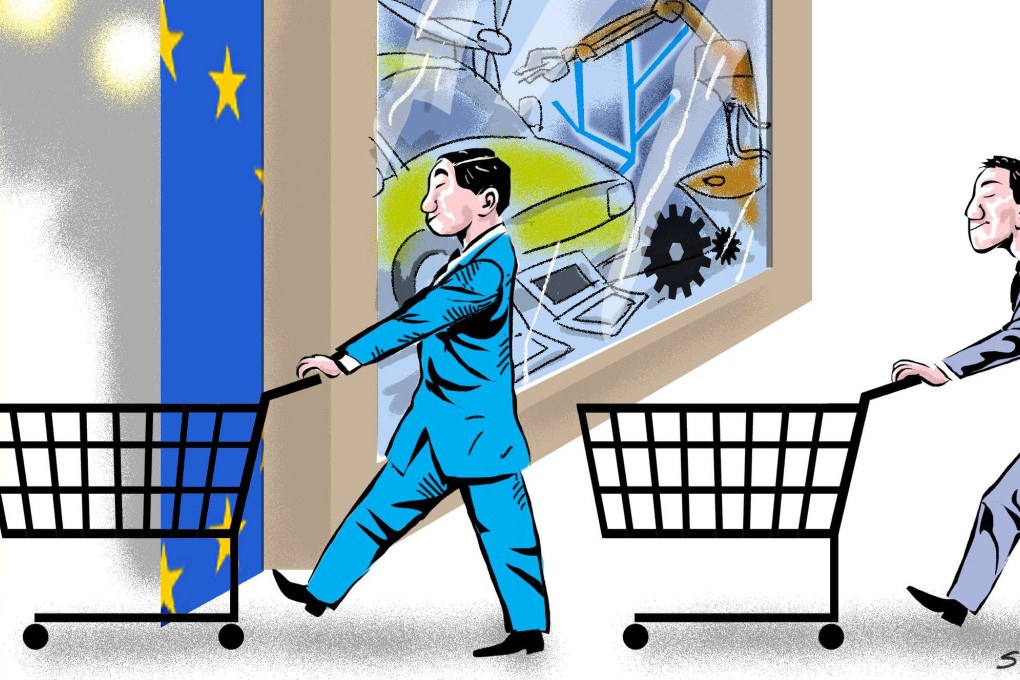Why China is investing heavily in Europe
Philippe Le Corre and Alain Sepulchre consider the reasons behind the surge in Chinese investment in European companies and assets, which offer legal security and some of the best technologies worldwide


Buy, buy, buy ... but how, what and why? China’s new offshore investment spree explained
Unlike trade and tourism, investment is about a long-term commitment best associated with a stable and legally secure environment. Whereas during the first decade of the 21st century, there was little significant Chinese investment in Europe, the figures since 2010 show a real surge. According to a report published jointly by the law firm Baker & McKenzie and the New York-based Rhodium Group, the total stock of Chinese investments in Europe went from US$6 billion in 2010 to US$55 billion in 2014. Bruegel, a Brussels-based think tank, estimates the distribution of Chinese outbound foreign direct investment flows as follows: 19 per cent of total Chinese foreign direct investment took place in Europe (stock: US$13.9 billion) and 13 per cent in North America (stock: US$11.4 billion), which has also become an important recipient.

European tech firms are grabbing Chinese investment
Chinese FDI in Europe increased by 44 per cent in 2015, and could jump dramatically this year, especially as top investor ChemChina is expected to acquire Syngenta, the Switzerland-based agri-business group, in a US$43 billion deal. In 2015, the same ChemChina purchased one of the world’s most famous tyre manufacturers, Italy’s Pirelli, for US$7.7 billion. Another major Chinese investor in Europe is Dalian Wanda, which acquired Britain’s yacht maker Sunseeker for £320 million (HK$3.6 billion) and is involved in massive property developments in Britain and France.
Five key reasons can explain why Europe has become more attractive to Chinese investors.
First, the debt crisis in 2008 was a crucial moment, when the Chinese government started buying eurobonds as well as investing in infrastructure companies at extremely competitive valuations – one good example being Greece’s Piraeus port. It is now almost entirely run by China’s Cosco Holding, after it acquired a 67 per cent stake from the Greek port authority.
Second, countries like Germany, Italy, France and the UK offer a unique selection of small and medium-sized enterprises with some of the best technologies worldwide. For Chinese companies in fields such as autos, food, energy, transport, luxury brands, entertainment and travel, it represents a way to transfer know-how to their home country and build world-class enterprises.
